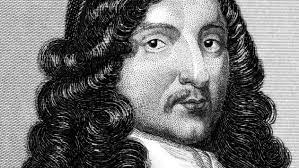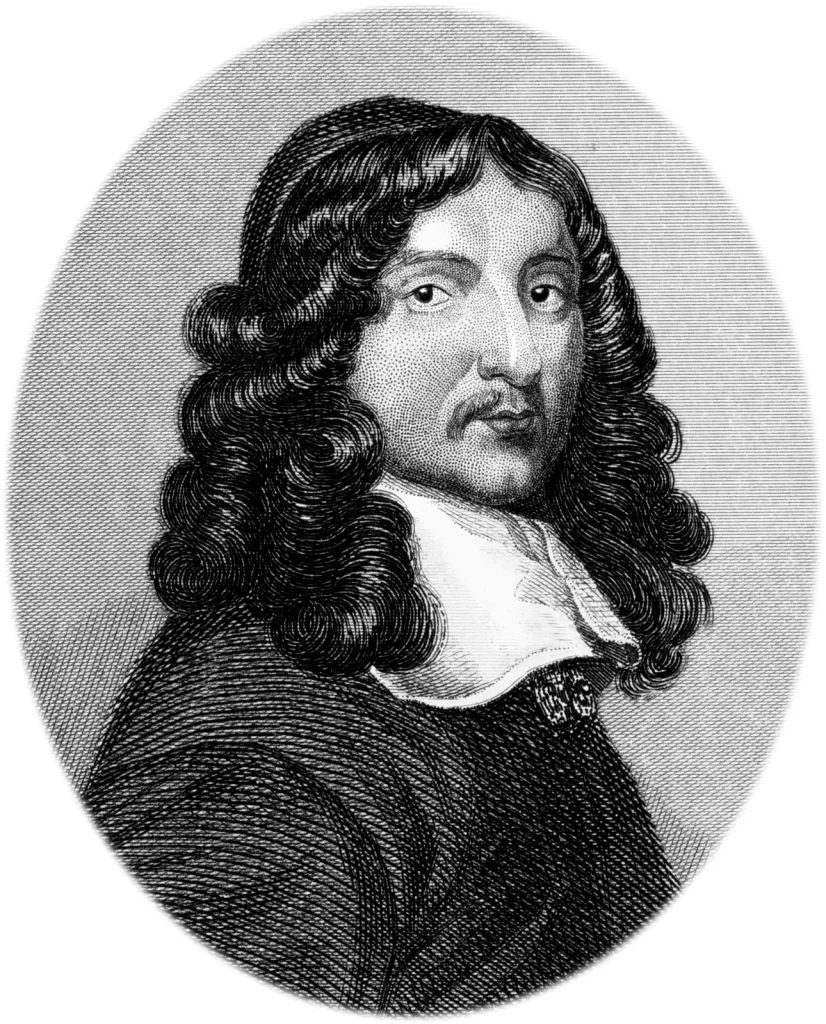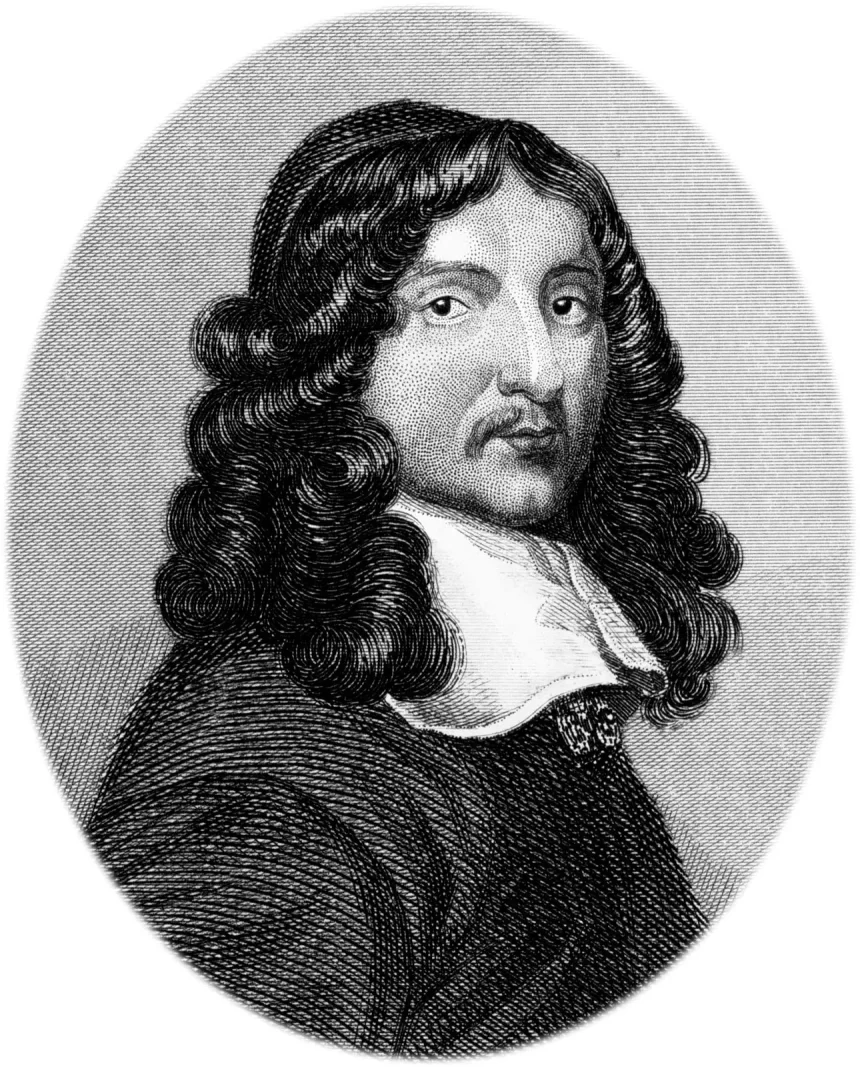Andrew Marvell (1621-1678) was one of the most significant English poets and satirists of the 17th century. Although much of his work was published posthumously, he was well-regarded in literary circles during his lifetime. This blog post offers a critical analysis of Marvell’s poetry, prose, and impact on English literature.
Overview of Marvell’s Literary Career
Marvell was born in Winestead, Yorkshire. He attended Trinity College, Cambridge where his talent for satire and wit emerged. After leaving Cambridge, Marvell traveled Europe for several years. He returned to England in the 1640s and aligned himself with the Parliamentarians during the English Civil Wars.
Marvell served as a tutor and secretary for some prominent families. During this time, he focused on writing lyric poems as well as satires criticizing the Republicans. His first published poems date to this period.
In 1653, Marvell was appointed by John Milton to assist him as Latin Secretary for the Commonwealth. He continued in government work through subsequent political regimes. Marvell served twice as a Member of Parliament in the late 1650s and 1660s.
Although he published some works during his lifetime, the majority of Marvell’s poetry and prose was published posthumously by his housekeeper Mary Palmer. His prolific and insightful writings have cemented his legacy as one of the leading metaphysical poets.
Key Elements of Andrew Marvell Poetry

Marvell’s poems demonstrate his mastery of metaphysical poetry, which was prominent during the 17th century. Here are some of the defining features of his poetic works:
- Conversational tone – The poems adopt an informal, conversational style even when dealing with philosophical themes.
- Elaborate imagery and conceits – He utilizes unusual imagery, paradoxes, and extended metaphors or conceits when exploring complex ideas.
- Theme of transience – Many of the poems contemplate mortality, the passage of time, and the ephemeral nature of life’s pleasures.
- Carpe diem – Related to transience, Marvell advocates seizing the day and enjoying earthly delights before time runs out.
- Tension between sensuality and morality – There is often ambivalence between submitting to carnal pleasures and maintaining spiritual integrity.
Some of Marvell’s most celebrated poems such as “To His Coy Mistress,” “The Garden,” and “An Horatian Ode upon Cromwell’s Return from Ireland” exemplify his poetic sensibilities.
Marvell’s Satires and Prose Writings
In addition to lyrical verse, Marvell also excelled at writing biting satires that criticized and mocked their subjects:
- Mocking satirical tone – He assumes an arch, mocking tone when satirizing public figures and institutions.
- Clever wit and irony – His satires rely on clever wordplay, irony, paradoxes and double meanings to expose flaws.
- Colloquial language – He writes his satires in a lively, colloquial style that contrasts with conventional poetic forms.
Some examples of Marvell’s acclaimed satires include “Last Instructions to a Painter,” “The Character of Holland,” and “Flecknoe, an English Priest at Rome.” These demonstrate his talent for parody and critique.
Marvell’s prose works are more straightforward but showcase his skill as a rhetorician and critic. Notable examples are “The Rehearsal Transposed,” where he defends Milton, and his contributions as Latin Secretary to various Commonwealth documents.
Key Themes in Marvell’s Works
By exploring some of the prominent themes in his oeuvre, we can better appreciate Andrew Marvell perspectives and poetic objectives:
Mortality and Carpe Diem
Many of Andrew Marvell verses focus on the fleeting nature of life and the importance of living in the present:
- Emphasis on seizing the day before time runs out
- Sense of urgency in face of human mortality
- Appreciation of transient natural beauty and pleasures
Tension Between Opposites
Andrew Marvell juxtaposes contradictory ideas and imagery to explore paradoxes:
- Physical versus spiritual, reason versus passion
- Appreciation yet rejection of sensual indulgence
- Praising Cromwell’s strength yet questioning his moral authority
Power and Corruption
The satires target the follies and corruption of the political elite:
- Critiques abuses of power, decadence, laziness in leaders
- Views power as breeding corruption and vice
- Warns against authoritarian policies and regimes
Nature and Artifice
Andrew Marvell ponders the dichotomy between art and nature:
- Superiority of natural beauty over formal gardens
- Natural imagery contrasted with references to literature and society
- Ambivalence over ideal state of human civilization
Andrew Marvell Impact and Legacy

Andrew Marvell was highly esteemed by peers like Milton and Pope, and his writings have remained influential:
- Helped popularize metaphysical poetry
- Associated with other metaphysical poets like Donne, Herbert, Vaughan
- Established hallmarks of metaphysical style
- Wit, elaborate conceits, conversational voice
- Mastered poetic form as well as satire and rhetoric
- Offered unique perspectives on morality, philosophy, politics
- Inspired later poets with themes of carpe diem, duality, transience
Nearly 350 years after his death, Marvell’s poems and satires remain widely read and analysed. His poetic voice exhibits erudition and imagination combined with an accessible, engaging style. Marvell’s restless mind and gift for irony infuse his works with layers of meaning that reward multiple readings. For sheer poetic excellence and depth of insight, Andrew Marvell stands as one of the luminaries of 17th century English literature.
Notable Poems for Textual Analysis
Here is a selection of some of Marvell’s most important and frequently studied poems:
“To His Coy Mistress”
- Explores carpe diem theme
- Contrasts expansive ideas and images with finite time
- Passionate argument for seizing the moment
“The Garden”
- Evokes pastoral innocence of nature
- Draws extended comparisons between nature and artistic creations
- Conveys the superiority of nature’s pure beauty
“An Horatian Ode upon Cromwell’s Return from Ireland”
- Ambivalent ode praising and questioning Cromwell
- Contrasts Cromwell’s strengths and moral legitimacy
- Sets grand imagery against pragmatic concerns
“The Nymph Complaining for the Death of Her Fawn”
- Adopts pastoral form
- Explores mortality and loss from nymph’s perspective
- Reflects on ephemerality of beauty and life
“Bermudas”
- Celebrates voyagers arriving at Bermuda islands
- Contrasts storms and paradise imagery
- Offers praise to divine providence and nature’s bounty
Each of these poems provides rich examples of Marvell’s metaphorical language, thematic focus, and philosophical contemplations, as well as demonstrating his technical skill with poetic forms and meters. Thorough analysis can elucidate their meanings and artistic achievements.
Conclusion
Andrew Marvell was undoubtedly one of the most accomplished and thought-provoking poets of 17th century England. The metaphysical style he helped advance introduced complex themes in natural-sounding but ingenious verse, often laced with irony. Meanwhile, his satires exemplified skilled rhetorical critique of contemporary society’s eccentricities and corruption. Marvell’s poems exhibit philosophical nuance as they explore humankind’s relationship to the physical world, time, morality, and our higher aspirations. For all these reasons, Marvell merits his reputation as one of the most important literary figures of his age, leaving a legacy that continues to inspire readers centuries later








